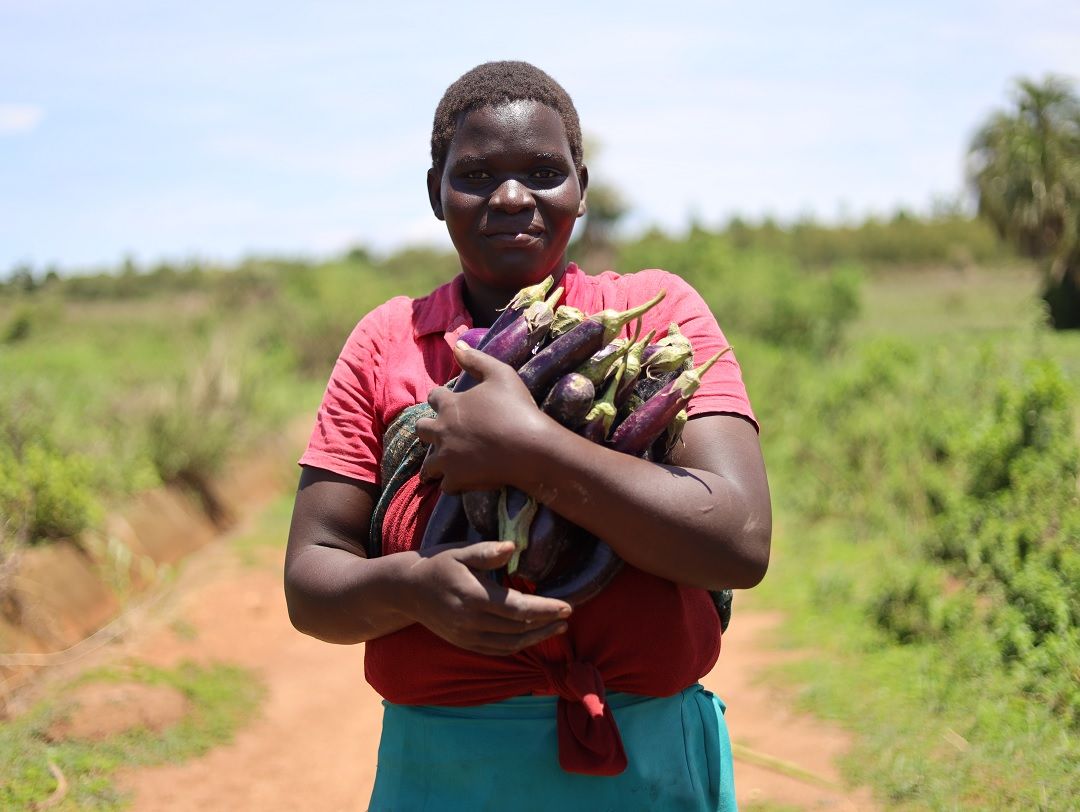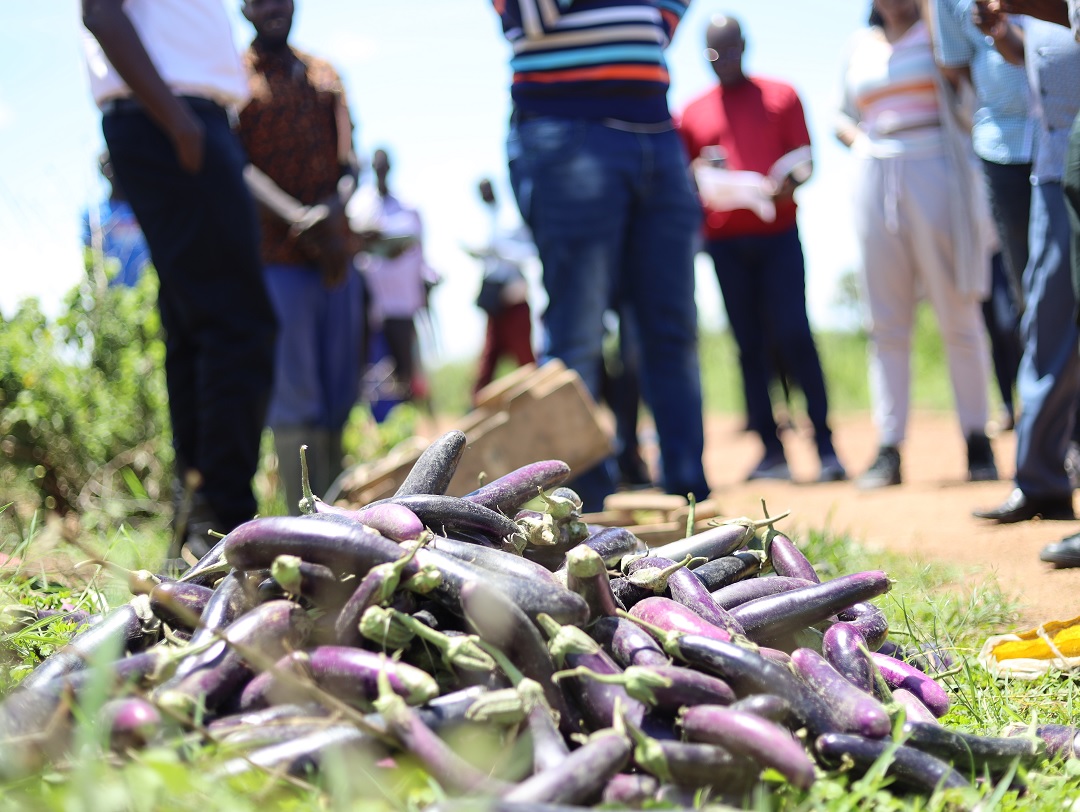 Stories
Stories
June 28, 2022 • 3 min read
In the sunny village of Atingtwo in Lira district lies a flourishing garden of eggplants and cabbages. Akullo Dillish, a 25-year-old mother of three, is weeding in her garden. When asked if it is not too hot to be working, she responds with a hearty laugh. “It is worth it,” she says, “this garden has to be taken care of because it is making me money.”
Akullo has been a small holder commercial farmer for years now, also growing tomatoes and soybeans. When she was invited by Jimmy, a farmer friend, to join an enterprise group and gain training in horticulture from Nile Forestry Agro, an implementing partner of the Young Africa Works: Markets for Youth programme, she knew that that was her window into doing commercial farming on a larger scale.

Happy farmer: Akullo holds healthy eggplants from her garden.
Young Africa Works: Markets for Youth
“Nile Forestry Agro trained us in good practices of agronomy, gave us discounted seeds, and routine technical support at the different phases of production. They also trained us on commercial tree production. This training has helped me to specialise in particular crops and also expand my farming on a commercial scale,” Akullo says.
She has since adopted the use of quality agro-inputs at different stages of production, and now maintains the garden through timely weeding to ensure that the plants are not overgrown. She also has access to technical support from Nile Forestry Agro whenever she needs it. She says this has been very helpful.
After the training, Akullo and the group members established individual gardens. She says the team visits one another’s gardens to do some cross-learning on best practices, given that they live close to each other.
Improved Outcomes at Home
Akullo, who owns the land on which she is farming, says she has found this new commercial horticulture approach to be very profitable. She has invested a total of 70,000Shs (c.$19 USD) in her garden to-date, and has earned 750,000Shs (c.$200) from her produce so far, selling at an average of 50,000Shs (c.$14) per sack. She keeps records of all her expenditure and income.
She says engaging in the project has also improved her livelihood and her family’s fortunes. She now pays the school fees for two of her school-going children with ease, unlike in the past where this was a challenge. She also started investing in livestock. Currently owning two goats, Akullo has already saved more money to buy some cows soon.

Harvest day for Akullo as fellow young farmers take notes.
Akullo is also happy to see that other members of her community have started coming to her home to purchase vegetables. She freely gives gardening advice and is proud to see neighbours emulating her horticultural practices in their own gardens.
“One lady that has been engaging with me already planted her tomatoes and they look lovely. People now consider my home as the easiest access to any vegetables they may need. They come to me even in the late hours when they urgently need to buy tomatoes or cabbages and eggplants for meals.”
Looking to the Future
It was not all smooth sailing for Akullo during her production. She recalls facing the challenges of crop diseases and an ever-drying climate, which stunted the quality of her eggplants. This, in turn, affected the prices of her produce and her income. She has now been trained by Nile Forestry Agro on spraying her crops to help fight off the crop diseases and hopes that drought and rising temperatures don not worsen.
When asked about her future for her farm and her life, Akullo lets out a shy laugh, and says with a smile, “I really want to expand my land to 2 acres and venture into growing onions. I want to continue paying my children’s school fees with ease and give my parents a decent livelihood. With a bigger farm, I am sure that I will be able to do these things.”
